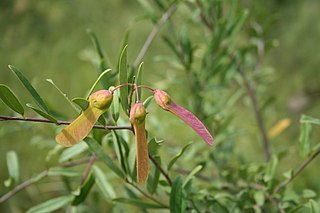
The Polygalaceae or the milkwort family are made up of flowering plants in the order Fabales. They have a near-cosmopolitan range, with about 27 genera and ca. 900 known species of herbs, shrubs and trees. Over half of the species are in one genus, Polygala, the milkworts.
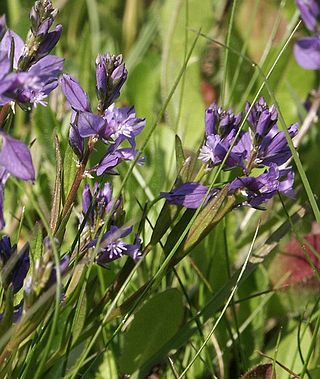
Polygala is a large genus of flowering plants belonging to the family Polygalaceae. They are commonly known as milkworts or snakeroots. The genus is distributed widely throughout much of the world in temperate zones and the tropics. The genus name Polygala comes from the ancient Greek "much milk", as the plant was thought to increase milk yields in cattle.

Polygala vulgaris, known as the common milkwort, is a herbaceous perennial plant of the genus Polygala in the family Polygalaceae.

Polygaloides paucifolia, synonym Polygala paucifolia, known as gaywings or fringed polygala, is a perennial plant of the family Polygalaceae.
Polygala helenae is a species of flowering plant in the family Polygalaceae. It is endemic to Greece. Its natural habitat is Mediterranean-type shrubby vegetation. It is threatened by habitat loss.
Snakeroot may refer to different plant taxa that have been used as a folk remedy against snakebites:

Polygala myrtifolia, the myrtle-leaf milkwort, is an evergreen 2–4 m tall South African shrub or small tree found along the southern and south-eastern coasts, from near Clanwilliam in the Western Cape to KwaZulu-Natal. It is a fast-growing pioneer plant, a typical fynbos component, and may be found on dunes, rocky places, along forest margins, beside streams, and in open grassland. It belongs to the milkwort family of Polygalaceae.

Polygala alpestris is a species of flowering plant in the milkwort family (Polygalaceae). It was described in 1823 and is found in Austria, France, Germany, Italy, Spain, Georgia, Turkey and Switzerland.
Polygala chapmanii is a flowering plant species in the milkwort family (Polygalaceae). It is endemic to states in the southeastern United States bordering the Gulf of Mexico including Alabama and parts of the Florida panhandle but is not reported from Texas. It is an annual and grows to about two feet tall. It is a dicot.
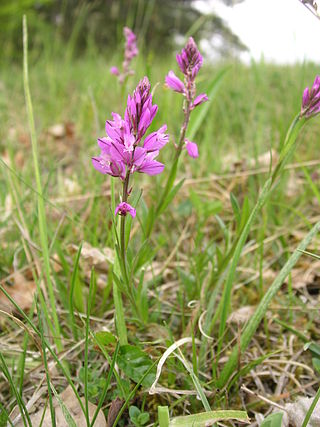
Polygala comosa is a species of flowering plant in the family Polygalaceae. It is endemic to most of Europe.
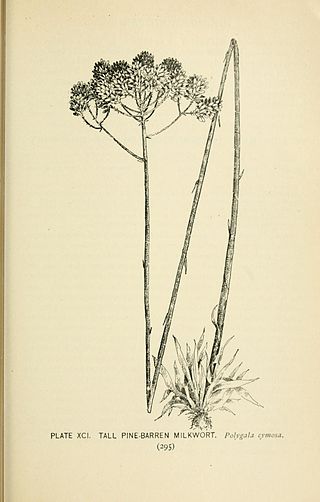
Polygala cymosa, the tall pinebarren milkwort, is a species of flowering plant in the family Polygalaceae. It is endemic to the United States.
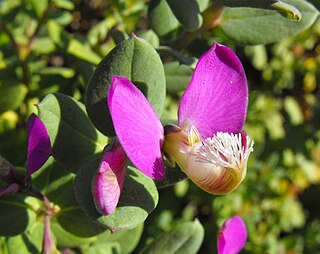
Polygala fruticosa is a species of flowering plant in the milkwort family (Polygalaceae). It is native to Eswatini and Kwazulu-Natal and the Cape Provinces in South Africa. It was first described by Peter Jonas Bergius in 1767. According to the Red List of South African Plants, it is of least ecological concern.
Polygala hookeri is a species of flowering plant in the milkwort family (Polygalaceae). It is endemic to Alabama.
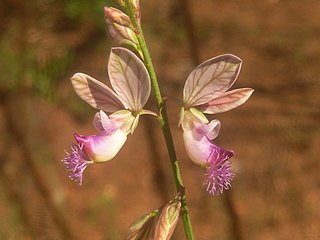
Polygala hottentotta is a species of flowering plant in the milkwort family (Polygalaceae). It is native to South Africa, Namibia, Lesotho, Mozambique, Eswatini, and Zimbabwe.
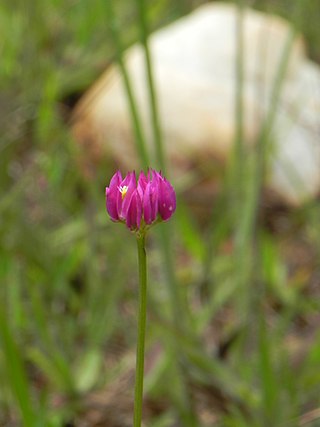
Polygala longicaulis, the longstem milkwort, is a species of flowering plant in the milkwort family (Polygalaceae). It is an annual dicot that is native to the Americas.
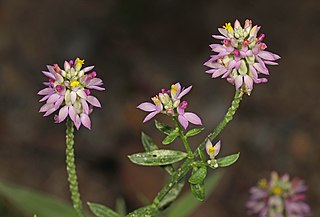
Polygala mariana, the Maryland milkwort, is a species of flowering plant in the milkwort family (Polygalaceae). It is endemic to the southern and eastern United States. It is an annual with a height between 4 and 16 inches and it flowers between June and October.
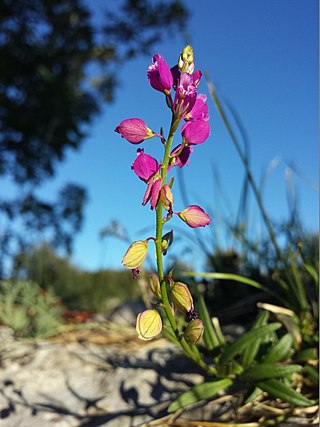
Polygala nicaeensis is a species of flowering plant in the milkwort family (Polygalaceae). It is native to France and Italy.
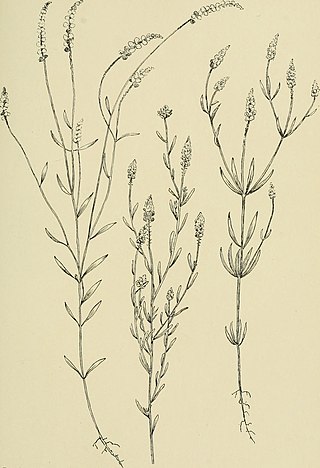
Polygala nuttallii is a species of flowering plant in the milkwort family (Polygalaceae). It is endemic to the United States.
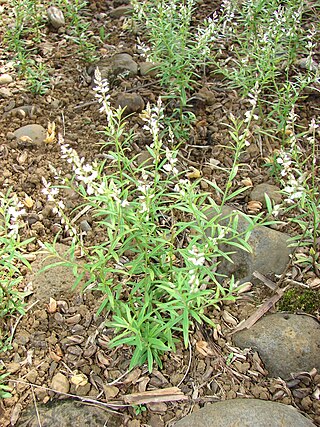
Polygala paniculata is a species of flowering plant in the milkwort family (Polygalaceae). It is native to grasslands with altitudes between 350 and 1,700 metres. It is native to Central and South America and has been introduced to East Africa, South Asia, and Southeast Asia. It is an annual herb which has a height between 15 and 50 centimetres It is used as a medicine against snake bites and blenorrhagias. The flowers of the plant have been described as pink or white.

Polygala virgata is a species of flowering plant in the milkwort family (Polygalaceae). It is native to eastern and southern Africa, from the Democratic Republic of the Congo and Tanzania to South Africa and Namibia.















